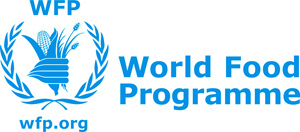KUWAIT: The UN World Food Programme (WFP) has been honored with the Nobel Peace Prize for 2020. In the following report, WFP Executive Director David Beasley joins Kuwait's Minister of Foreign Affairs Sheikh Dr Ahmad Nasser Al-Mohammad Al-Sabah in assessing the threat of rising global hunger.
Will We Face a Hunger Pandemic?
Most hunger today is a self-inflicted wound. Six out of 10 of the world's hungry live in countries at war with themselves - more than 400 million people. Conflict causes hunger and hunger causes conflict in a vicious circle. The resulting tide of hungry refugees and economic migrants threatens to destabilize entire regions.
The World Food Programme has been awarded the Nobel Peace Prize for 2020 for "its efforts to combat hunger, for its contributions to bettering conditions for peace in conflict-afflicted areas, and for acting as a driving force to prevent the use of hunger as a weapon of war and conflict."
Kuwait is an important humanitarian partner to WFP. The late Amir, His Highness Sheikh Sabah Al-Ahmad Al-Jaber Al-Sabah, was awarded the title of "Humanitarian Leader" by the United Nations Secretary General in recognition for his outstanding contributions and support to humanitarian work.
His Highness Sheikh Nawaf Al-Ahmad Al-Jaber Al-Sabah is committed to fulfilling Kuwait's and the late Sheikh Sabah's humanitarian vision and providing life-saving assistance to vulnerable populations in critical need. Kuwait has long been a donor to the World Food Programme and has contributed over $140 million to its operations over the last five years and the Kuwait Red Crescent Society has also supported WFP.
Regrettably, ending hunger is the UN Sustainable Development Goal on which we have made the least progress. There are so many drivers behind hunger: poverty, discrimination, environmental degradation, insufficient investment in agriculture. With each passing year, climate change inflicts more harm on our farmers as they struggle to cope with rising temperatures and cruel cycles of flood and drought. After harvest, an astonishing 1.3 billion metric tons of food simply go to waste each year all over the world.
Add COVID-19 to the global hunger equation and we could soon see another pandemic -- a hunger pandemic as brutally relentless as the virus itself. COVID-19 has taken 1.5 million lives already. If we allow it to create a second pandemic of hunger and malnutrition, the cost in lives lost will be far more devastating.
The COVID-19 pandemic has eaten into harvests, disrupted supply chains, and decimated the incomes of tens of millions of households. Where food is available, each day more people lack the money to buy it. All told, 270 million people may find themselves in an extreme hunger crisis in 2021 including some 30 million people who are already at the brink of starvation.
What do we need to do?
First, all parties should honor the Secretary-General's call for a global ceasefire. If most hunger stems from politics, we need political solutions. Second, we must pre-position food in the most vulnerable regions. This is not just a task for governments. The private sector and the world's billionaires should step up to help, both with funds and their expertise.
During the COVID-19 pandemic the profits of leading technology and online marketing companies exploded, while the world's 2000 plus billionaires now control a phenomenal $10.2 trillion in assets. If there was ever a time to share that bounty, it is now.
Third, we must take a more strategic approach to aid working more in tandem and with a true spirit of collaboration. "Smart funding" through multi-year and multi-sector donations can help donors have a broad impact beyond containing emergencies. It is not enough for us to save lives, if we don't change lives.
Finally, we must build resilience in societies so they can better withstand shocks like COVID-19. And we have to start with the young. School closures have ended meals for 370 million children and WFP is already providing food assistance to help strengthen nutrition and prevent disease among these children. We cannot let a generation in the developing world become collateral damage in this pandemic -- malnourished and uneducated, with little hope of leading productive lives.
If the COVID-19 pandemic has taught us anything, it has taught us empathy. Even in wealthy nations, families with jobs one day find themselves relying on government aid or food banks the next. Perhaps in the shared pain COVID-19 has thrust on us we can finally come together and build a world without hunger.
.jpg)



